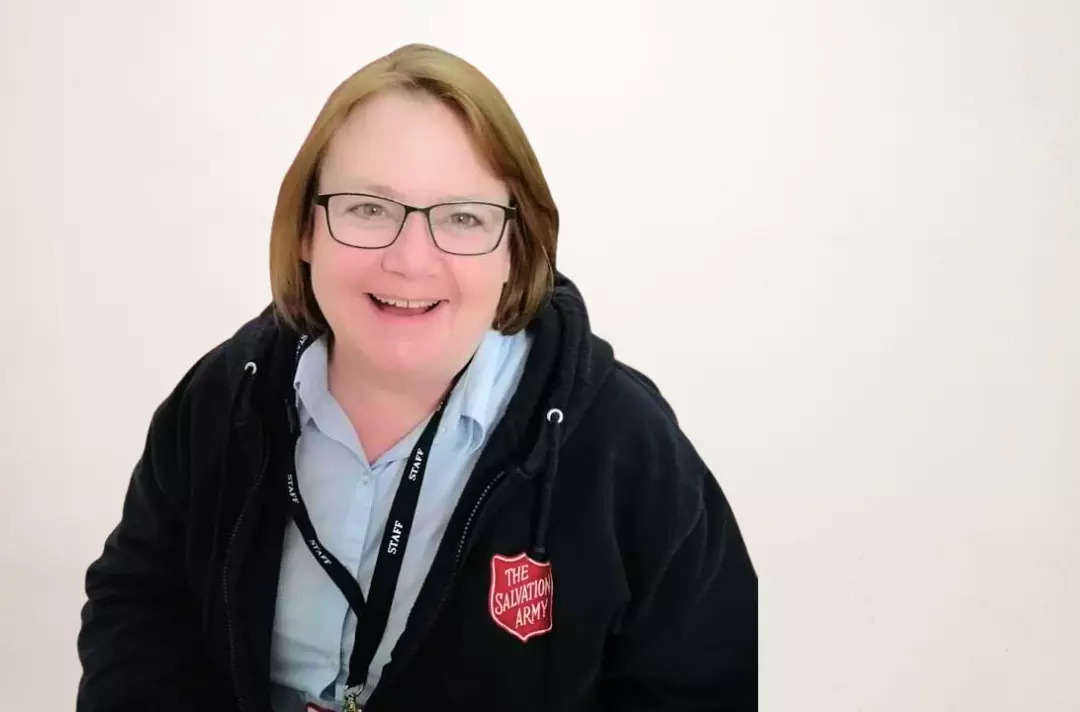25 November 2023
Learning to support survivors of domestic abuse
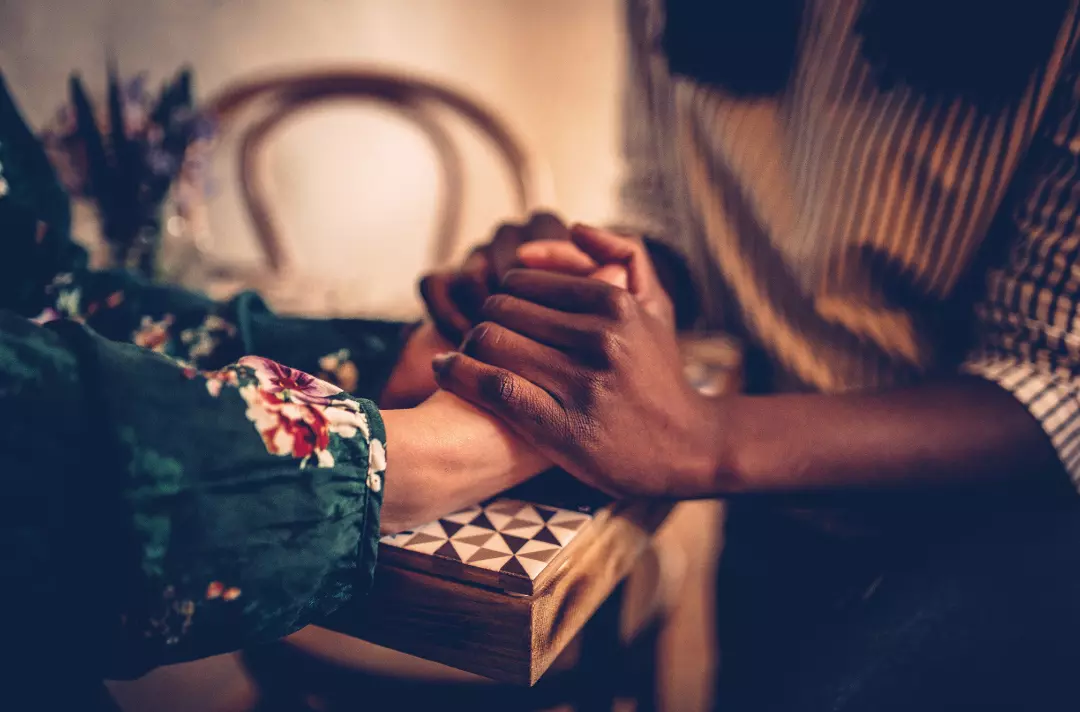
Lieutenant Amanda Sewell (Thorndale Family Centre) tells Salvationist about new domestic abuse training in the Ireland Division.
How did your passion for supporting survivors of domestic abuse come about?
I’m a domestic abuse survivor. That was before I came into officership, but it’s certainly part of my journey. I’m a firm believer that God uses everybody’s brokenness in whatever ministry they are put in.
I called out to the Lord in my lowest moment and he gave me the courage and ability to find help, even if it wasn’t always helpful – I learnt from that unhelpful help. Through all this I recognised that there is no single fix. We talk about recovery and addiction, but there is recovery out of domestic abuse and it is so unique to each individual that the best thing we can do is come alongside them.
It is a journey from oppression into freedom and that’s what we’re looking for in people’s spiritual lives as well. How can we expect people to feel comfortable worshipping if they’re in that sense of oppression?
When did you first become aware of Restored UK?
As a survivor. One of the questions survivors often want to know is, ‘What was it about me?’ Restored UK’s brilliant Survivors’ Manual covers all the practical stuff a survivor needs to know as well as the theology.
Is there still a taboo around discussing domestic violence?
It isn’t one of those things we talk about. Even if people suspect something is going on, they don’t want to get involved because they don’t feel they know how to deal with it. We might think it doesn’t impact people within the Church, but one in four women experience domestic abuse in their lifetime. That statistic is no different for people in the Church. And that’s reported cases. How many are not reported?
When I joined one of the corps in Belfast, I gave my testimony – and I don’t shy away from my history, because it is why I’m here today. Following that, several people told me about their experiences – it was only because I spoke about it that people spoke to me about it.
How did the divisional training begin?
Within the first few months of my appointment, I became aware that a lot of the trauma within the families was due to domestic violence. I discovered a 2017 statistic that Northern Ireland had the joint highest rate of femicide in Europe. Instantly I was determined that something had to be done.
The Restored Beacon model was then being promoted through Family Ministries. I knew we had to equip all our corps, because they need to be able to work with anyone who walks through their doors. If they say ‘I don’t know how to deal with this’, not only will that person seeking help feel ostracised by the Church, but they might also be left feeling completely hopeless.
I approached divisional leaders Colonels Neil and Chris Webb. They were amazing and straight on board. Then Deb Juster and Major David Betteridge from Family Ministries came over and I presented my vision that it needed to be not a corps-centric but divisional solution. I was expecting a ‘no that doesn’t fit the Restored Beacon model’, but everyone supported the vision.
Family Ministries’ partnership with Restored has helped make it all happen, as well as funding from them and support from our divisional leaders. That doesn’t take away all the funding needs for corps, but it takes the biggest part of that obstacle away. And having passionate corps officers and members has been amazing.
When did the training take place?
The three sessions have taken place between September and November. I was terrified nobody was going to come! I had to trust that the Lord had got it all in hand. We had more than 30 people attend each one. We have had representatives from most corps and Lifehouses. The feedback has been really positive.
What does the end goal look like?
The larger corps can become Restored Beacon churches. The smaller corps will come under a divisional Restored Beacon lead, who will oversee and support anybody, so nobody’s on their own. Corps officers will have the divisional Beacon lead to consult should they need that support. More often than not, those responding to a victim are doing the right thing, but having reassurance and support is necessary to sustain yourself and prevent being hoodwinked and sucked in yourself by the abuser.
It’s about building a strong network so people know that domestic abuse has no place in our churches, centres or communities, and provide a safe space for victims to begin their journey of recovery.
How does a corps or centre become a Restored Beacon?
If you have any questions about what you can do where you are, I recommend getting in touch with Family Ministries at familyministries@salvationarmy.org.uk.
Discover more
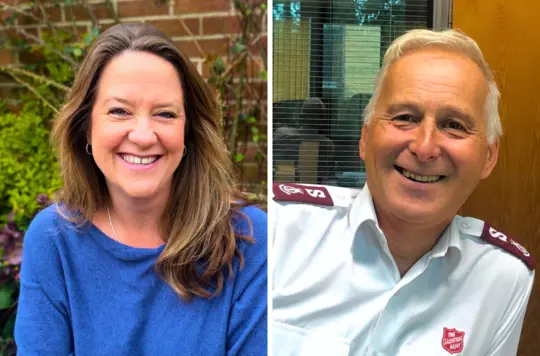
Lyn Woods talks to Restored UK and Family Ministries about their partnership working with survivors of domestic abuse.
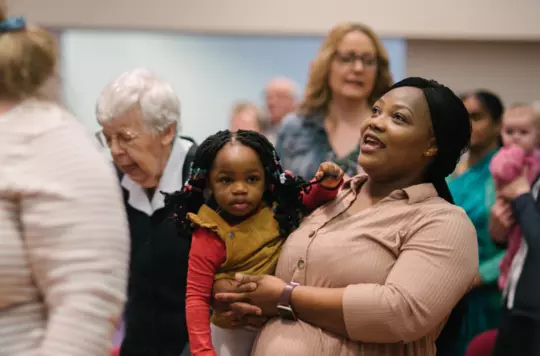
Support, training and resources to inspire families and individuals to flourish and develop in their faith journey.

Enabling, empowering and equipping diverse expressions of women’s ministry through events, resources and the Riverbank movement.
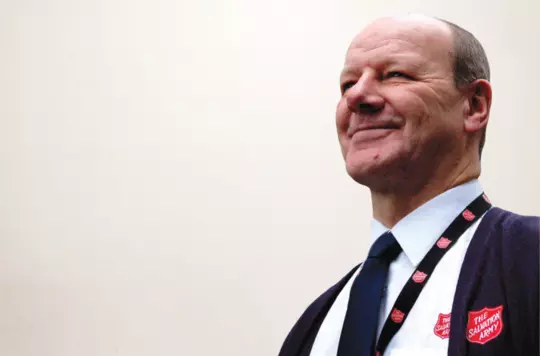
Secretary for Mission Lieut-Colonel Drew McCombe (THQ) reflects on what it means to belong to Jesus.
